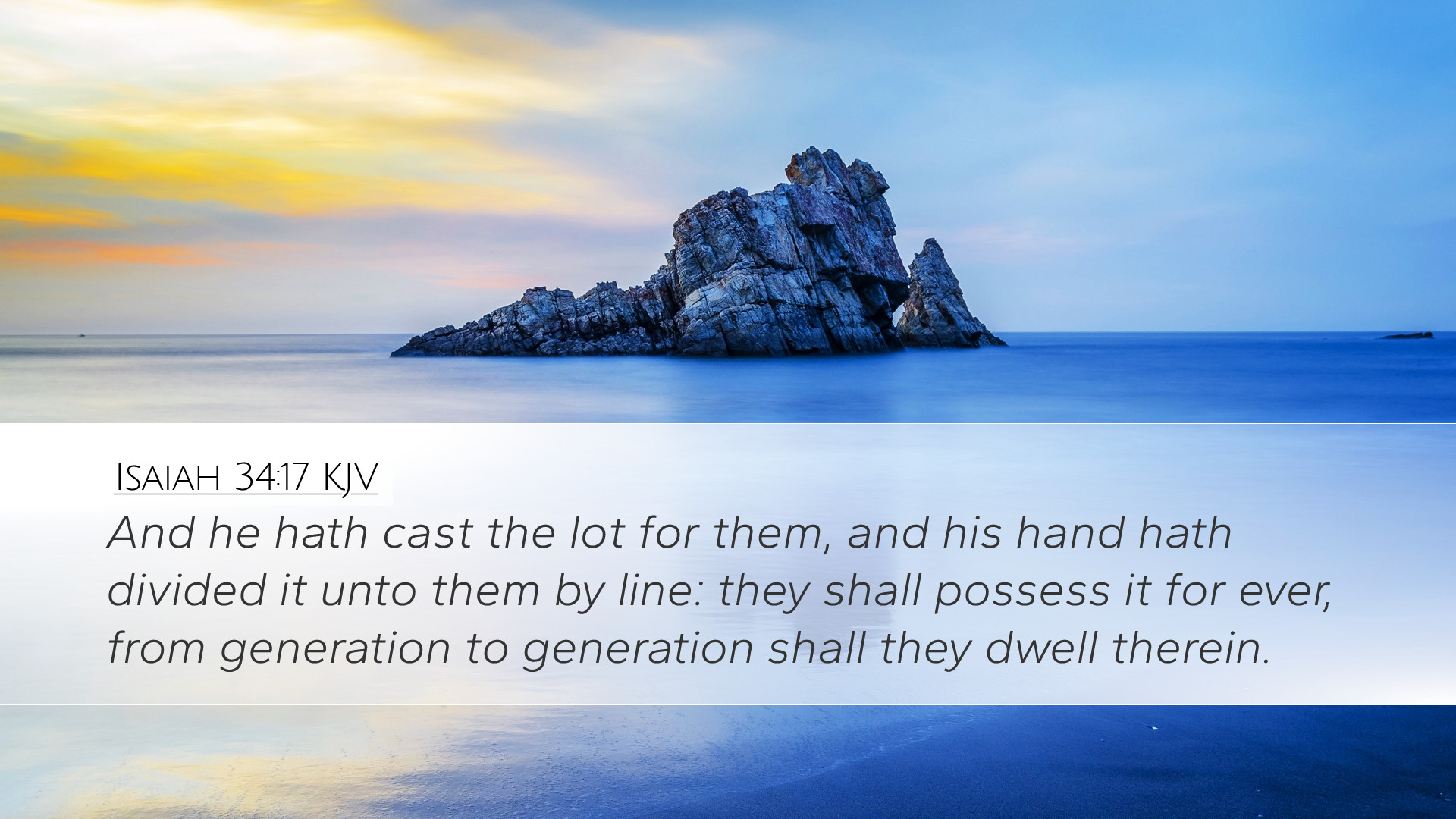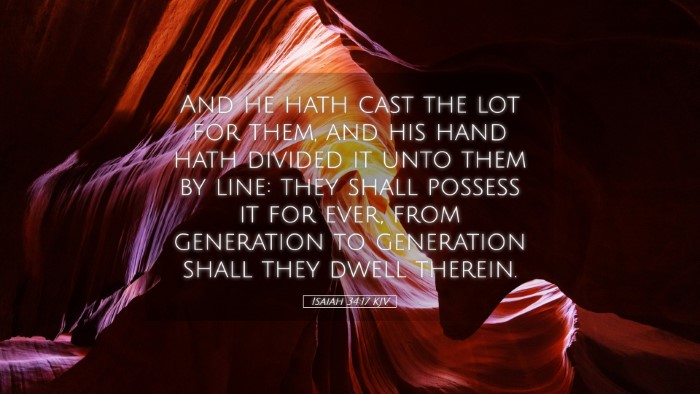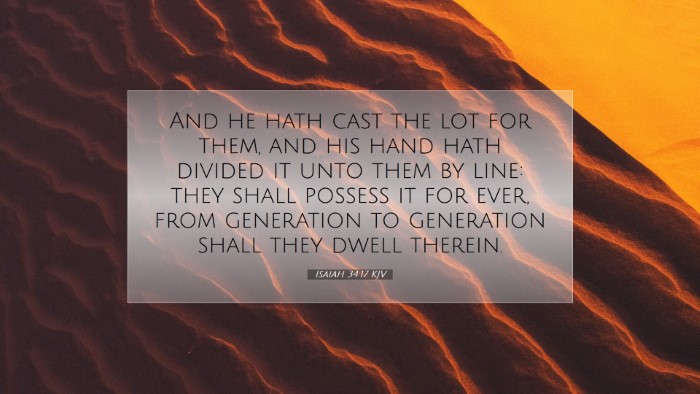Commentary on Isaiah 34:17
Verse: “And he hath cast the lot for them, and his hand hath divided it unto them by line: they shall possess it for ever, from generation to generation shall they dwell therein.” (Isaiah 34:17)
Overview and Context
This verse is part of a larger prophetic judgment concerning Edom, illustrating the finality of God’s decisions regarding nations and their territories. Isaiah, a prophet during a period of significant turmoil for Israel, communicates God’s sovereign will over nations, depicting Him as both a judge and a divider of lands.
The context is critical; this proclamation not only speaks to the fate of Edom but also serves as a contrast to the plight of Israel. While Edom faces destruction and desolation, the implications for Israel lean towards hope and restoration in God’s providence.
Biblical Themes
- Divine Sovereignty: The act of God casting lots and dividing lands signifies His absolute authority over creation. There is a rich theological assertion that everything, including the destinies of nations, is orchestrated by God’s hand.
- Judgment and Justice: The tone of this passage is one of recompense. Edom, representing pride and opposition to God’s people, faces divine judgment, reinforcing the theme that rebellion against God leads to destruction.
- Eternal Possession: The statement “they shall possess it for ever” serves as both a comfort and a warning. For the faithful, the promise of eternal possession of the land is a reflection of God’s covenant; for the wicked, it is a statement of their ultimate loss.
Insights from Public Domain Commentaries
Matthew Henry
Matthew Henry emphasizes God’s meticulous governance over the nations. He elaborates on the imagery of casting lots as a clear display of God’s determination. Henry notes, “The land was divided according to God’s appointment, which signifies His special care and attention to how lands and peoples are allotted.” This reinforces the perception of divine order amidst chaos.
Albert Barnes
Albert Barnes provides a detailed observation on the phrase “he hath cast the lot for them.” Barnes interprets this as a metaphor for God’s sovereign decisions about the fate of nations. He points out that while Edom is given over to desolation, it highlights the blessings of God’s people who are assured of inheritance and continuity. “This serves to illustrate the principle of divine justice, where the wicked are dealt with according to their iniquities,” he writes.
Adam Clarke
Adam Clarke focuses on the implications of the inheritance mentioned in the verse. He remarks on the significance of receiving land “from generation to generation.” This suggests a perpetual promise that echoes through generations, symbolizing stability and heritage for God’s people. Clarke also articulates a poignant contrast between the dwelling of the wicked in desolation and the faithful in peace, stressing the dichotomy present in God’s judgments.
Theological Reflections
The essence of Isaiah 34:17 invites a reflective consideration on the nature of divine justice, sovereignty, and heritage. For pastors and theologians today, this passage provides rich material for sermons that explore God’s faithfulness amidst judgment and the ultimate hope for restoration.
Application for Ministry: In ministry, the truths contained in this verse can guide the pastoral approaches to justice, mercy, and the significance of adhering to God’s will. It serves as a reminder that possessions and legacies ultimately rest in God's hands, urging believers to seek a deepened relationship with God who holds their futures.
Conclusion
Isaiah 34:17 encapsulates profound themes of divine sovereignty, judgment, and the everlasting nature of God’s promises. The combined insights from noted biblical commentators enrich our understanding and appreciation of this text. As scholars and students engage with this verse, may the truths revealed lead to a greater reverence for God's role in both history and personal faith journeys.


